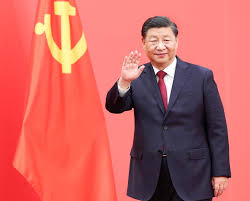Trump and Xi come to a new agreement on TikTok

Aaron Stanway
International News Editor
After Congress passed the Protecting Americans from Foreign Adversary Controlled Applications Act in 2024, ByteDance was told to sell TikTok’s U.S. business or face a ban. In January 2025, the Supreme Court upheld the law, clearing the government to block app store updates and hosting if divestment didn’t happen. That legal backdrop still drives everything now.
This week brought the sharpest movement in months: Donald Trump said Xi Jinping has “approved” a deal a U.S.-controlled TikTok that would avert a shutdown. Beijing hasn’t confirmed that narrative, and reporting remains split on whether there’s a final agreement or just a political green light to keep negotiating.
What would a deal look like? Outlines circulating in Washington press point to a U.S.-based entity with American majority ownership, potentially involving familiar names from earlier discussions; ByteDance would retain a minority stake and license TikTok’s algorithm rather than transfer it outright. That licensing wrinkle matters because China treats recommendation algorithms as controlled tech export needs Beijing’s blessing. Even with a license, critics say it could leave open questions about ongoing influence.

Politically, both leaders have incentives. Trump has repeatedly extended divestment deadlines to avoid pulling TikTok from millions of U.S. users while hunting for a sale that passes legal muster. Xi, facing tariffs and broader tech pressure, can frame an algorithm license as exporting Chinese technology on China’s terms. But until documents are signed and vetted against the statute, Congressional hawks and courts could still challenge any structure seen as too cozy with ByteDance.
The center of gravity has shifted toward a spin-off + algorithm license rather than a clean break. The Supreme Court ruling looms over any arrangement. If Trump and Xi convert today’s “we have a deal” talk into binding terms that satisfy both U.S. national-security demands and China’s export controls, TikTok stays. If not, the legal ban path reactivates first via app store and hosting restrictions, then a slow fade for the app without updates. Watch the paperwork, not just the headlines.
Overall, the fate of TikTok is unlikely to be resolved in the near future. With all the political turmoil happening in the US, this is not likely to be on the priority list for the trump administration. While the fate is uncertain, TikTok fans can always switch to another one of the short form content platforms. Although many will claim it is not the same, when TikTok was banned in India in 2020, users were quick to flock to the alternatives. Regardless of the fate of the platform in the US, we will still have a way to watch the TikTok style of media.
Contact Aaron.stanway@student.shu.edu
